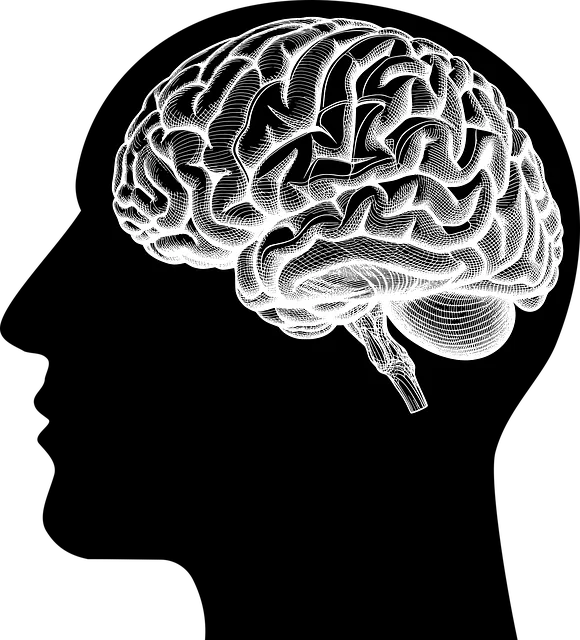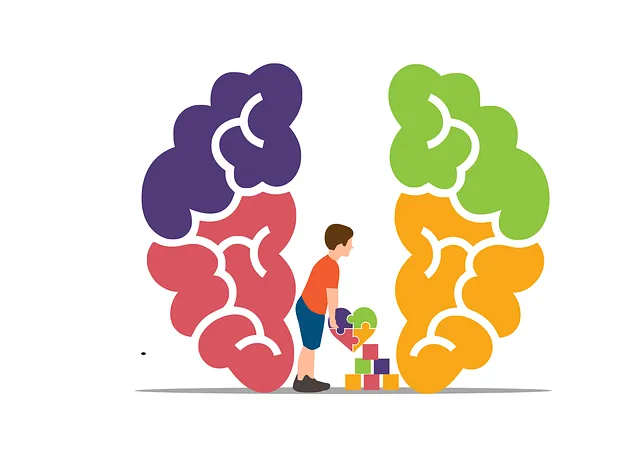Castle Rock Kaiser Permanente, a renowned mental health facility, tackles diagnosis challenges through a multi-faceted approach. Integrating advanced assessment tools, open dialogue, and self-care practices, they enhance accuracy. Their innovative strategies include the Community Outreach Program, risk assessment techniques, and patient-centered care, aiming to improve diagnosis and overall treatment quality at the facility. Specialized training workshops further equip professionals with evidence-based practices for precise assessments and tailored treatments, ensuring personalized and effective care for each individual.
Mental illness diagnosis accuracy is a critical aspect of patient care, especially at facilities like Castle Rock Kaiser Permanente. This article explores the challenges faced in diagnosing mental health conditions within this renowned mental health facility and delves into innovative solutions. We review existing diagnostic methods, discuss training initiatives for healthcare professionals, and highlight patient-centered strategies to enhance diagnosis and care quality. By focusing on these efforts at Castle Rock Kaiser Permanente, we aim to contribute to the ongoing improvement of mental illness diagnosis accuracy.
- Understanding the Challenges of Mental Illness Diagnosis at Castle Rock Kaiser Permanente
- The Current State of Diagnosis Accuracy: A Review of Existing Methods
- Innovative Approaches to Enhance Diagnostic Accuracy at the Facility
- Training and Education Initiatives for Healthcare Professionals
- Patient-Centered Strategies for Improving Diagnosis and Care Quality
Understanding the Challenges of Mental Illness Diagnosis at Castle Rock Kaiser Permanente

At Castle Rock Kaiser Permanente, navigating the complexities of mental illness diagnosis presents unique challenges. As a leading mental health facility, they recognize that accurately identifying and understanding diverse psychiatric conditions is paramount to effective treatment. However, factors such as comorbidity, subjective experiences varying across individuals, and the dynamic nature of mental health can complicate the diagnostic process.
These challenges necessitate a multifaceted approach to improvement. Castle Rock Kaiser Permanente focuses on integrating advanced assessment tools, encouraging open dialogue between patients and healthcare providers, and promoting self-care practices like stress management and self-esteem improvement. By fostering an environment that prioritizes both comprehensive evaluation and patient-centered care, they strive to enhance diagnostic accuracy, ultimately benefiting individuals seeking support for their mental health at this esteemed facility.
The Current State of Diagnosis Accuracy: A Review of Existing Methods

The current state of mental illness diagnosis accuracy at institutions like Castle Rock Kaiser Permanente mental health facility reflects a complex interplay of factors. Traditional methods often rely on self-reported symptoms, clinical interviews, and standardized questionnaires, which, while valuable, can be subject to human bias and subjective interpretation. These approaches may not fully capture the nuances of individual experiences, leading to misdiagnosis or delayed treatment. For instance, cultural differences in expressing emotional distress can impact assessment accuracy.
Efforts to improve diagnosis accuracy focus on integrating diverse tools and techniques. The implementation of a robust Risk Assessment for Mental Health Professionals allows for more objective evaluations by training practitioners to recognize subtle cues during interactions. Additionally, Community Outreach Program Implementation plays a crucial role in early intervention by connecting individuals with mental health resources before crises arise. Compassion Cultivation Practices have also emerged as a promising strategy, fostering empathetic understanding among healthcare providers and potentially improving diagnosis accuracy through enhanced patient-provider relationships.
Innovative Approaches to Enhance Diagnostic Accuracy at the Facility

At Castle Rock Kaiser Permanente mental health facility, innovative approaches are being implemented to enhance diagnostic accuracy. One such initiative is the Community Outreach Program, which aims to bridge the gap between healthcare services and individuals in need across the community. This program not only increases accessibility but also fosters a more holistic understanding of mental health issues, empowering both patients and professionals.
Additionally, the facility prioritizes training initiatives for mental health professionals, focusing on risk assessment techniques that go beyond traditional methods. By incorporating positive thinking strategies into diagnostic processes, healthcare providers are equipped to identify subtle cues and nuances, leading to more precise evaluations. These efforts collectively strive to improve not only the accuracy of diagnoses but also the overall quality of care at Castle Rock Kaiser Permanente.
Training and Education Initiatives for Healthcare Professionals

The Castle Rock Kaiser Permanente mental health facility has been at the forefront of innovative training and education initiatives aimed at enhancing the accuracy and effectiveness of mental illness diagnoses. These efforts prioritize continuous learning for healthcare professionals, focusing on advanced techniques and evidence-based practices. By participating in specialized workshops and seminars, mental health experts are equipped with the latest knowledge in their field, enabling them to deliver more precise assessments and tailored treatments.
One key strategy involves Stress Management Workshops Organization, where medical staff learn to identify and manage stress-related symptoms that often overlap with mental illnesses. Additionally, implementing Risk Management Planning for Mental Health Professionals has proven invaluable. These plans help healthcare providers anticipate potential risks and challenges in diagnosis, ensuring they are prepared to make accurate determinations while prioritizing patient safety and well-being.
Patient-Centered Strategies for Improving Diagnosis and Care Quality

At Castle Rock Kaiser Permanente mental health facility, patient-centered strategies are transforming diagnosis and care quality. By empowering individuals to actively participate in their treatment plans, healthcare providers foster a collaborative environment that enhances communication and trust. This approach ensures patients feel heard, understood, and respected, leading to more accurate diagnoses and improved outcomes.
Implementing self-awareness exercises and risk assessment tools, such as those integrated into Risk Management Planning for Mental Health Professionals, plays a crucial role in this process. These initiatives encourage professionals to recognize their biases and limitations, thereby improving their ability to accurately interpret patient presentations. Consequently, this reduces misdiagnosis rates and promotes more personalized, effective care tailored to each individual’s unique needs.
Mental illness diagnosis accuracy at Castle Rock Kaiser Permanente can be significantly enhanced through a multi-faceted approach. By combining innovative methods, comprehensive training for healthcare professionals, and patient-centered strategies, the facility can improve diagnostic outcomes and care quality. Integrating these efforts will not only benefit individuals receiving treatment at Castle Rock Kaiser Permanente but also contribute to the broader goal of improving mental health care across similar facilities.






